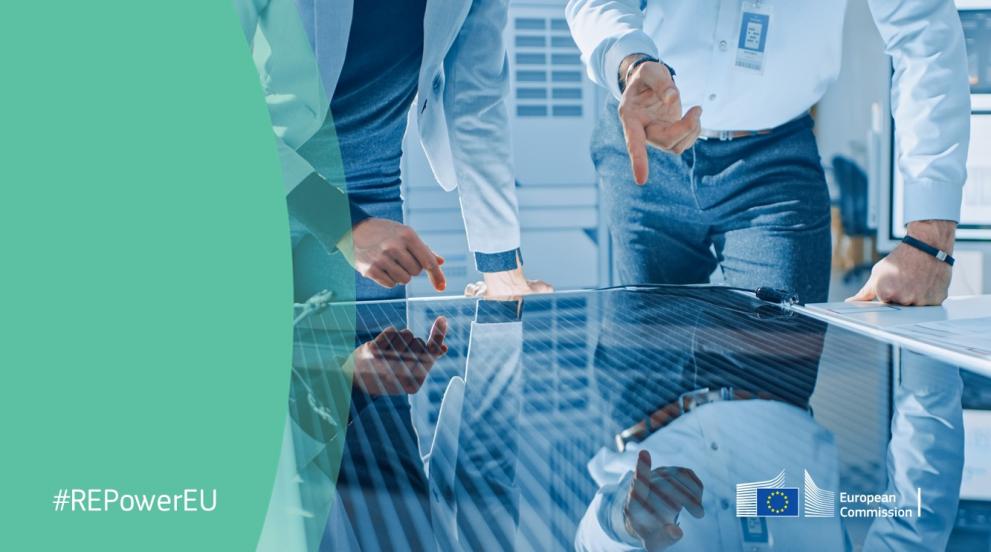
Yesterday a multi-country flagship workshop on permit-granting processes for renewable energy projects took place. The aim of the workshop was to discuss the options that Member States have in order to accelerate the permitting process, gathering the experience and good practices that have been identified at the Member State level.
The event, organised in the framework of a peer-learning tool for environment authorities TAIEX - Environmental Implementation Review, was attended by around 100 high-level officials from Ministries of the Environment, Energy and related Agencies of nearly all EU Member States. It provided an opportunity to discuss challenges and remaining obstacles at national, regional and local levels in the authorisation of renewable energy projects.
Experts from Austria, Belgium, Denmark, Finland, Germany and Spain presented good practice examples related to site selection and simplified permitting procedures. Three representatives from the private sector presented examples of minimizing environmental impacts of renewable energy projects. To support Member States in identifying go-to areas for the rapid deployment of new installations for the production of energy from wind and solar renewable sources, Joint Research Centre presented its Energy and Industry Geography Lab – an online platform bringing together a wealth of information on relevant energy, industry and environmental factors. Commission speakers included officials from DG ENV, DG ENER, DG REFORM and JRC.
The workshop acknowledged that the current pace of deployment of renewable energy projects will need to be accelerated significantly to meet the needed capacity increase on time. Slow and complex permitting processes are a key obstacle to unleashing the renewables revolution.
Discussion aimed to facilitate the sharing of experience and best practices among Member States in a participatory approach together with the local and regional authorities. There is a significant potential for improvements and learning from each other and the dialogue should continue in the future.
Background
Renewable energy is at the heart of the clean energy transition necessary to achieve the objectives of the Paris Agreement and the European Green Deal.
Russia’s invasion of Ukraine turned the quickest possible deployment of renewables into a strategic priority of the EU.
Within the 18 May 2022 Package on Repower EU, the Commission adopted a Recommendation and Guidance on speeding up permit-granting procedures for renewable energy projects and facilitating power purchase agreements.
The workshop kick-started the implementation of this Recommendation.
For More Information
Annexes to REPowerEU Communication
Staff Working Document: Investment needs, hydrogen accelerator and bio-methane plan
EU External Energy Engagement Strategy
Amendments to Renewable Energy, Energy Performance of Buildings and Energy Efficiency Directives
Recommendation on permitting procedures and Power Purchase Agreements
Guidance on permitting procedures and Power Purchase Agreements
JRC’s Energy and Industry Geography Lab online platform
Regulation establishing the Recovery and Resilience Facility
Proposal for a Regulation on REPowerEU chapters in recovery and resilience plans
Guidance on recovery and resilience plans in the context of REPowerEU
Factsheet on REPowerEU Actions
Factsheet on financing REPowerEU
Factsheet on the EU External Energy Strategy
Details
- Publication date
- 14 June 2022
- Author
- Directorate-General for Environment

